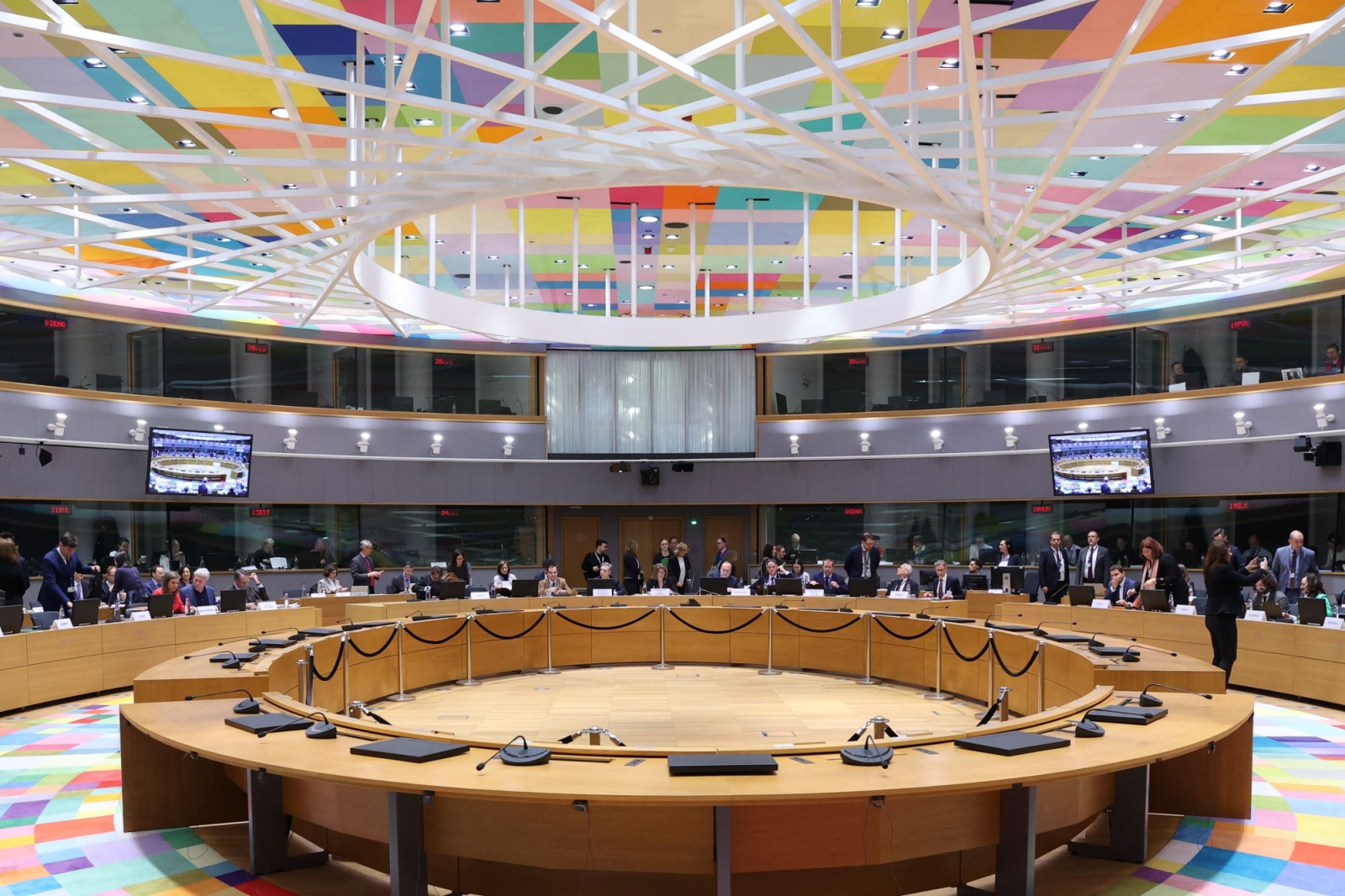On March 15, ambassadors from European Union member states gathered at the COREPER Permanent Representatives Committee voted in favor of the Corporate Sustainability Due Diligence Directive (CSDDD). Also known as CSDDD, CSDD, CS3D, or more simply Supply chain act, the Due Diligence Directive was created to establish rules regarding the responsibilities of large companies in relation to the actual and potential negative impacts on the environment and human rights of their business activities, subsidiaries, and along the entire value chain. With the vote in COREPER, the saga for the approval of the CSDDD is therefore drawing to a close. After postponements and rejections, however, the price of the agreement was a significant dilution of the text's degree of ambition.
The scope of the directive will, in fact, be restricted to companies with more than 1,000 employees (and not more than 500 like in the previous proposal) and a worldwide turnover of more than 450 million euros. Industries considered high-risk presently appear to have been excluded entirely, while the introduction of the legislation will undergo further postponement. “Despite sabotage from the Liberal Democratic Party in the German government, from Italy [which, however, later changed its position with the March 15 vote, ed.], France, Finland and others,” Heidi Hautala, vice-president of the European Parliament, said on LinkedIn, “the core of the directive remains intact. The UN Guiding Principles on Business and Human Rights will, for the first time, be codified in EU law and companies will be obliged to conduct environmental and human rights due diligence in their value chains.”
“While it is a relief that the legislation has survived attempts to eliminate it completely,” commented Hannah Storey, Policy Advisor on Business and Human Rights at Amnesty International, “some countries have been weeding out the text so that the CSDDD in its current form falls short of the original intentions. It will now apply only to the largest companies, which means that nearly 70 percent of companies that would have been covered in the previous draft will now be exempt.”
CSDDD, a half-successful (due) diligence assault
According to several diplomatic sources, the required qualified majority in COREPER was obtained through intensive diplomatic efforts and considerable last-minute compromises negotiated by the Belgian EU Council Presidency. “Due Diligence has passed in the Council! The people and the planet prevailed over cynicism. Thanks to the Belgian Presidency for all its efforts,” the proposal's rapporteur Lara Wolters (S&D) immediately wrote on X.
“The behavior of the Council and member states over the past months has been reprehensible and detrimental to the credibility of EU decision-making,” added Heidi Hautala. “Instead of respecting the December tripartite agreement, which already represented a balanced compromise, member states engaged in an endless series of haggling and last-minute attempts to weaken the legislation.”
In recent weeks, a genuine diplomatic battle around the text has been playing out in Europe. After the provisional agreement reached between the Council and Parliament in December, the formal adoption of the Directive by member countries scheduled for February 9 has, in fact, been skipped due to obstruction by some states, including Germany and Italy. These delegations voiced the concerns of major industry associations. In particular, Germany's BDI and Italy's Confindustria lamented the risk of the introduction of excessive bureaucratic burdens and additional costs for companies. But that was not all.
On February 6, a letter had circulated, viewed by Renewable Matter, addressed by Business Europe to the ambassadors of the 27 member states. The document gathered the industrialists' additional demands. First and foremost, the European business confederation stressed the need for political engagement between the Commission and member states to ensure harmonization in the future transposition phase of the Directive. This was to prevent the risk of fragmentation of the Single Market. Business Europe then called on member states to rebalance penalty and liability provisions (the December text included penalties to offending companies up to 5 percent of their worldwide net sales). “The liability rules are still unbalanced because they overestimate the leverage and influence that European companies have in their business chain, while underestimating the asymmetries and information gaps that companies face when mapping their risks,” the document reads. However, the draft approved on March 15 removed liability clauses, which would have allowed unions to take legal action against non-compliant companies.
In the letter, Business Europe also highlighted the risks of introducing an obligation to terminate existing contracts in the event of violations of environmental protection, worker protection and human rights protection provisions along the supply chain. “The obligation to terminate contracts should really be a last resort measure,” it reads. “The Council should maintain its previous position of granting exceptions to termination in cases where severance of a relation would be worse than the impact to be avoided, or when there is no available alternative to that business relationship.” In that case, termination “would cause substantial harm to the business.” A risk that Business Europe says would undermine “Europe's goal of ensuring access to essential raw materials for transition and security.”
In the same vein, reacting to the March 15 agreement, Business Europe Director General Markus J. Beyrer stated, “The new due diligence rules will add unprecedented obligations, establish harsh penalties with potential existential implications for companies, and unilaterally expose them to litigation from all over the world. While theoretically outside the scope of the directive, SMEs will be negatively affected since they comprise the majority of value chains […] We have requested meaningful harmonization, clearer definitions and more balanced enforcement and liability provisions, which are not there. The narrow scope of approval and the abstention of as many as 10 member states, representing over 31% of the EU population, show that this compromise is still far from a workable solution. We urge EU decision makers to address the remaining concerns before the final adoption of the directive.”
Not all the industry was against it
It should be noted that not the entire industrial world was against the CSDDD. For example, the World Business Council for Sustainable Development (WBCSD), a global organization led by the CEOs of more than 225 of the world's leading companies, “strongly” urged European Union (EU) member states on February 15 to support CSDDD in the COREPER meeting vote.
WBCSD's appeal was echoed during the same days by an open letter signed by 26 companies and supplier networks – including ALDI SÜD, Bayer, Primark, Mars, Tchibo, KiK, Ritter Sport, VAUDE, and FRoSTA – addressed to the German Chancellery to support the approval of the Directive. “As large, medium and small companies and their networks, we are very concerned that German support for the Corporate Sustainability Due Diligence Directive may still be withdrawn during the final approval process. The political compromise on CSDDD last December is based on UN and OECD standards, and therefore on guidelines that responsible companies have been using as a reference for years. In our view, the CSDDD requirements are appropriate and feasible.”
Other reactions
“After years of tough negotiations and despite multiple attempts to gut the law, member states finally supported the CSDDD. However, this vote carried a high price: thanks to last-minute haggling, the law will now cover only a limited number of companies, missing the initial goal of addressing the entire environmental footprint of companies,” Anaïs Berthier, head of the Brussels office of the NGO ClientEarth, said in a statement, commenting on the March 15 vote.
According to Berthier, the CSDDD has the potential to set a global precedent by transforming voluntary international standards into binding rules that promote fair competition and level the playing field for large companies across the EU. “Corporate lobbying and political games have squandered this opportunity to revolutionize the way we do business in the EU and beyond by excluding most companies from its scope,” Berthier adds. According to the European Coalition for Corporate Justice, “Unfortunately, the CSDDD will only apply to about 0.05 percent of EU companies and business activities that typically pose risks to the environment and human rights.”
This article is also available in Italian / Questo articolo è disponibile anche in italiano
Image: Council of the European Union
© all rights reserved



